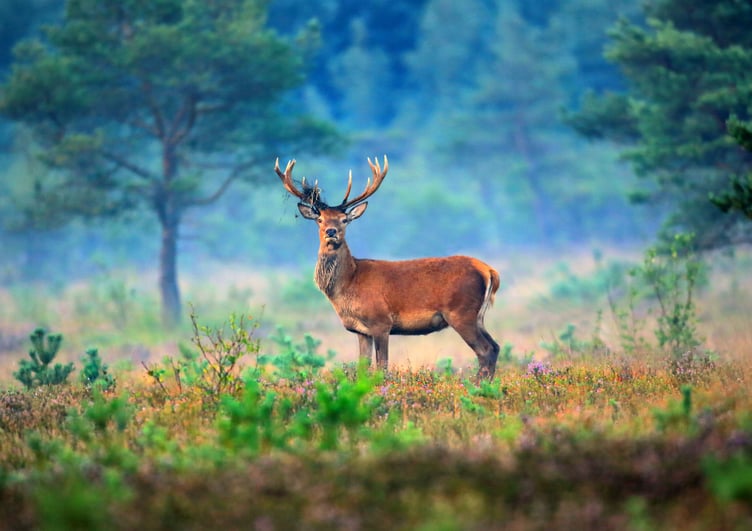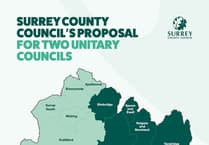An emergency appeal in August by Surrey Wildlife Trust for donations following a massive wildfire on Pirbright Ranges has generated over £43,000 towards restoring its precious heathland habitats.
Around 85% of the UK’s heathlands have been lost over the past 150 years through agriculture, urban development and changes in land management, so we cannot afford to lose more.
Pirbright Ranges is one of the largest areas of lowland heath in Surrey and home to many rare and threatened species. Patches of ground continued to burn even five weeks after the initial fire. In total, over 650 acres of pristine heathland were affected.
Hundreds of ground-nesting bird chicks that were too young to fly away from the fire perished, including European nightjars, Dartford warblers and woodlarks. The damage will also have prevented their parents from nesting a second time this year.
Reptiles such as slow worms, grass snakes and adders also died, alongside invertebrate species including endangered heath tiger beetles, and sliver-studded blue butterflies.
Pirbright Ranges is owned by the Ministry of Defence and, for safety reasons, it is not accessible to the public. However, it is managed for wildlife by Surrey Wildlife Trust, which keeps a herd of red deer on the site to graze the heathland. This reduces the dominance of Scots pine, common gorse and silver birch, so allowing slower growing dwarf scrub and specialist heathland plants to flourish, in turn creating the unique heathland ecosystem.
Although the deer themselves survived the fire, they have been affected, as hundreds of metres of fencing and heavy-duty sleepers that kept them safely on site needed replacing.
The forage they rely on through the winter has been reduced, so Surrey Wildlife Trust is providing additional food in the form of haylage – grass that has been cut then stored for fermentation in plastic without first being completely dried. In addition, the animals have received regular vet checks and inspection by Surrey Wildlife Trust staff.
Happily, the success of the emergency appeal means the trust can fund these additional costs without cutting back on other planned activities.
Surrey Wildlife Trust’s director of reserves management, James Herd said: “Wildfires have put Surrey on the front line of the climate and nature emergency, and we urgently need extra support to meet the challenge. The heathland will regenerate over time, but it is likely to be eight to twelve years before it returns to full health. The deer will perform a unique and irreplaceable role in this.”
Most of the money raised through the emergency appeal is being used on Pirbright Ranges and to ensure the welfare of the deer there – the target was initially £40,000 to be spent on site – with any additional funds being invested in the continuing safety of other Surrey heathlands and their unique plants and animals.
Surrey Wildlife Trust manages several areas of heathland including Chobham Common National Nature Reserve and the Wisley and Ockham Commons that are particularly susceptible to fire in dry conditions. This may lead to a severe strain on the trust’s resources in the years ahead. Managing these unique habitats already costs hundreds of the thousands of pounds a year.
It is not too late to donate to the appeal. For details visit www.surreywildlifetrust.org/wildfire-appeal
James added: “With the help of local people, we will do all we can to explore what more can be done to protect our natural heritage as weather patterns change.”





Comments
This article has no comments yet. Be the first to leave a comment.